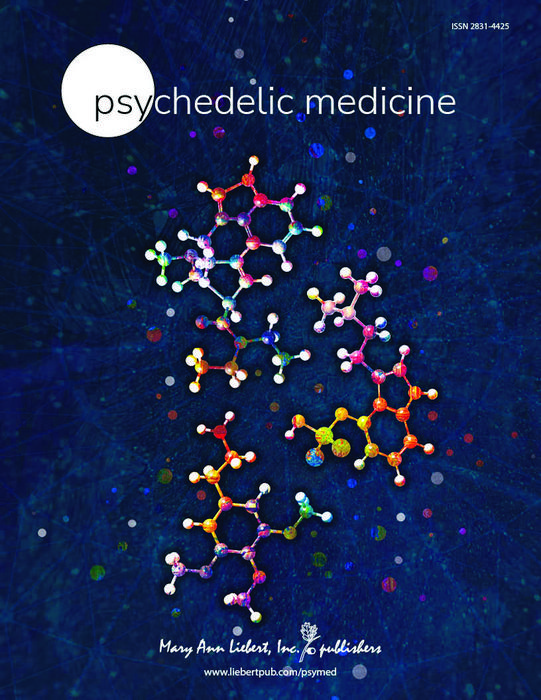A groundbreaking new study published in the esteemed peer-reviewed journal Psychedelic Medicine reveals compelling evidence that psilocybin, the psychoactive compound found in certain species of mushrooms, profoundly enhances psychological well-being in clergy members from diverse major world religions. This research sheds new light on the therapeutic and transformative potential of psychedelics not only in mental health contexts but also in spiritual and religious domains. By rigorously evaluating the effects of controlled psilocybin administration, the study demonstrates measurable improvements in religious attitudes, spiritual behavior, and psychological health, marking a significant milestone in the interdisciplinary field exploring psychedelics and spirituality.
Conducted as a randomized controlled clinical trial, the research engaged a cohort of clergy members who had no previous experience with psychedelics. The participants underwent two psilocybin sessions spaced approximately one month apart, with doses calibrated at 20 mg/70 kg during the first session followed by either 20 mg or 30 mg/70 kg in the second. This methodical dosing regimen was crucial to ensuring safety and allowing comprehensive assessment of psilocybin’s impact on various psychological and religious outcomes. Comparisons with a matched control group illuminated statistically significant positive changes attributable to the intervention.
Analysis revealed that those clergy members who received psilocybin reported dramatic enhancements across a spectrum of domains related to their religious and spiritual lives. These improvements included more frequent and meaningful religious practices, more open and positive attitudes toward their faith traditions, and increased subjective effectiveness in their vocational roles as community spiritual leaders. Notably, these benefits extended beyond strictly religious parameters, encompassing general mood elevation, reduced psychological distress, and more prosocial behavior, which speaks to psilocybin’s broad psychotherapeutic potential.
One of the most compelling elements of this study lies in the sustained nature of these positive alterations. Follow-up assessments performed up to 16 months after the second psilocybin session confirmed that participants maintained the gains in religious conviction, spiritual outlook, and mental well-being over extended periods of time. This durability challenges conventional views of psychedelics as inducing only ephemeral or superficial experiences and suggests a profound and integrated transformation of personal and vocational identity.
The spiritual significance of the psilocybin experiences cannot be overstated. Overwhelmingly, participants rated at least one session as among the top five most spiritually meaningful and sacred moments of their entire lives. Such reports of transcendental and mystical experience complement psychological measures and underscore the unique intersection of neuropharmacology and spiritual consciousness unlocked by psilocybin. These subjective experiences are hypothesized to catalyze lasting shifts in cognition and affect, facilitating deeper religious engagement and existential well-being.
From a neuroscientific perspective, psilocybin’s mechanism of action is primarily linked to its agonist effects at serotonin 2A receptors in the brain, particularly within the default mode network (DMN), a set of interconnected cortical regions associated with self-referential processing and rumination. Temporary disruption of DMN integrity under psilocybin appears to loosen rigid neural and cognitive patterns, enabling novel perspectives on the self and one’s relationship to the broader universe—a process that may explain phenomenological accounts of spiritual epiphany and enhanced religious receptivity observed in this population.
This clinical trial was spearheaded by a distinguished team of researchers including the late Roland Griffiths from Johns Hopkins University, alongside prominent colleagues Stephen Ross and Anthony Bossis from New York University Grossman School of Medicine, whose prior research has contributed significantly to the modern renaissance in psychedelic science. Their expertise ensured rigorous methodology was applied, including placebo controls, standardized psychological assessments, and comprehensive follow-ups, lending robustness and credibility to the findings.
Importantly, this study situates itself within a growing body of literature exploring psychedelics as adjuncts or alternatives to traditional psychiatric pharmacotherapy, especially for treatment-resistant depression, anxiety, and existential distress. However, its unique focus on clergy members highlights psychedelics’ potential utility in enhancing spiritual counseling, religious practice, and community leadership. This expands the discourse beyond clinical symptomatology toward enriching life purpose and existential meaning, areas often neglected by conventional medicine but critical to holistic health.
The choice of clergy as research subjects is particularly incisive given the vital role religious leaders play in shaping communal values, mental health, and resilience. Enhancing their well-being and effectiveness through psychopharmacological means could have cascading benefits for entire faith communities and potentially foster more compassionate, open-minded religious environments. This potential societal impact elevates the importance of such research and invites ethical, theological, and medical interdisciplinary dialogues.
This pioneering research also underscores the emergence of Psychedelic Medicine as a leading journal committed to advancing scientific understanding of psychedelic substances across multiple dimensions—including basic neuroscience, clinical trials, translational research, and medical applications. As the first peer-reviewed publication focused exclusively on psychedelic medicine, the journal serves as a vital hub for disseminating data that will inform future policies, clinical guidelines, and therapeutic innovations in this rapidly evolving field.
The findings invite critical reflection on the intersection between pharmacology, spirituality, and mental health, posing essential questions about the place of psychedelics in culturally sensitive healing practices. As regulatory landscapes shift and clinical interest in psychedelic-assisted therapy accelerates, this study offers pioneering evidence for integrating spiritual efficacy into therapeutic frameworks, moving beyond symptom reduction to experiential transformation.
In summary, the study published in Psychedelic Medicine represents a landmark advancement demonstrating that psilocybin intake among clergy members significantly improves psychological well-being, spiritual attitudes, and religious behaviors. These effects are robust, sustained, and corroborated by subjective reports of profound sacred and meaningful experiences. This work not only augments the scientific understanding of psilocybin’s psychospiritual effects but also opens new avenues for enhancing religious leadership and mental health in faith-based contexts.
Subject of Research: People
Article Title: Effects of Psilocybin on Religious and Spiritual Attitudes and Behaviors in Clergy from Various Major World Religions
News Publication Date: 30-May-2025
Web References:
https://www.liebertpub.com/doi/10.1089/psymed.2023.0044
https://home.liebertpub.com/publications/psychedelic-medicine/673/overview
Image Credits: Mary Ann Liebert, Inc.
Keywords: Social sciences, Behavioral psychology, Clinical psychology, Cognitive psychology, Developmental psychology, Experimental psychology, Personality psychology, Neuroscience, Psychological science




